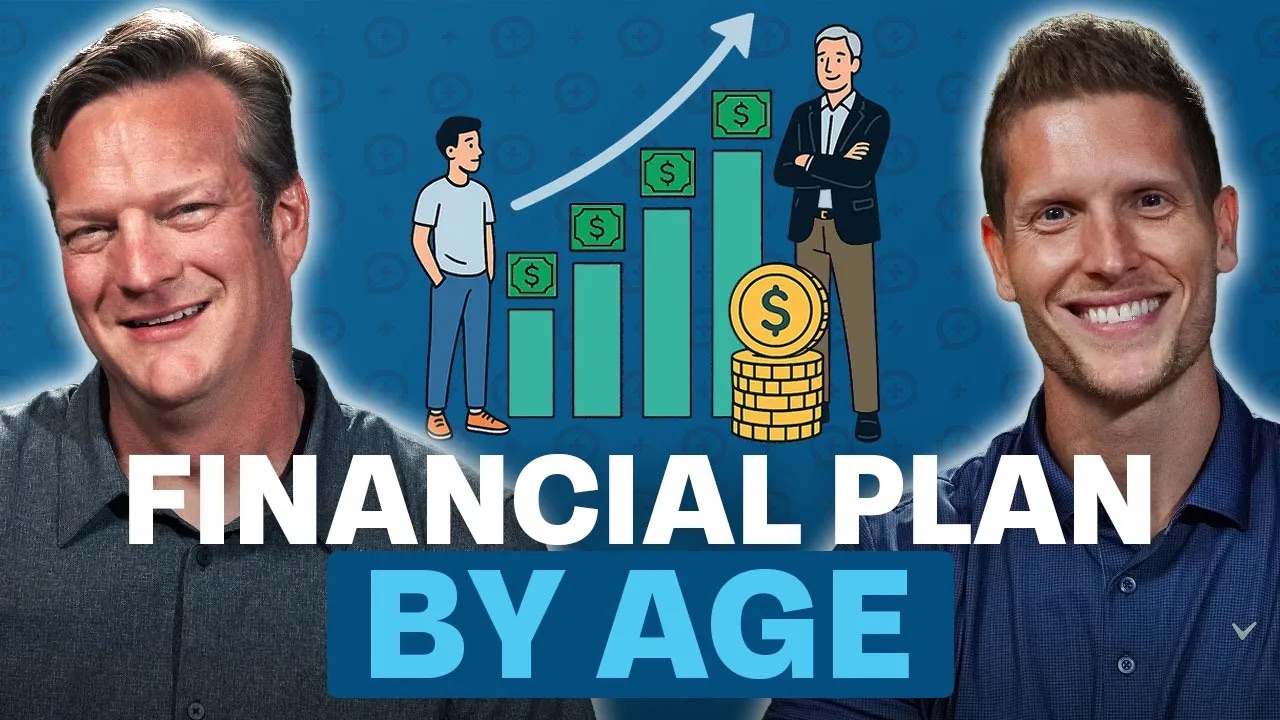Next up, we have a question from Bizarro O'Brien. Hey, he's already got a tumbler. I know he asked, he doesn't. He does not, alright, because I know we've answered a lot of his questions. He just hasn't. He's been very unlucky. I know, as Bizarro O'Brien would be unlucky, um, to not have hit it on the right day to get a tumbler. So, Brian J., we're gonna hook you up. Exactly, I feel like this is finally Brian J. Bizarro Brian's day. But his question for today is, "My spouse and I both have modest pensions and are saving 25% before maxing out retirement accounts, all of which are Roth. Would there be any benefit to investing a portion after-tax rather than Roth?"
Yeah, so we get this question a lot. Um, if I can do all Roth, should I do all Roth? Are there benefits of after-tax accounts? Overall, should I think about funding in that way? And the way that I would start to answer the question, Bizarro Brown, is that it really depends on your unique situation, your unique circumstances. Financial plans are, in fact, unique to what it is you are trying to accomplish with your dollars, and on what time frame and with what risks considered. So, if you're someone who's thinking about retiring early and maybe you want to leave the workforce before 59 and a half, and maybe your pensions don't kick in until after age 60, or maybe they're not immediate pensions, or maybe you have to hit some age before those pensions will start, then that after-tax bridge account may be the account you want to start building up to build that bridge. Or maybe there are other aspirations Bizarro O'Brien has. Maybe Bizarro O'Brien wants to get into residential real estate or wants to get into commercial real estate. Well, if all of your dollars are invested in Roth dollars and their retirement money put aside, it's going to be hard to utilize and use those as available capital for some of those other projects. So, I think there are a number of reasons why after-tax or taxable investments could be a prudent strategy, even for someone in Bizarro Brian's situation.
Yeah, Brian, this is not an uncommon situation. That's why when you look at the financial order of operations on moneyguy.com resources, if you want to go to
learn.moneyguy.com, we actually have a deep dive course that goes really deep into a lot of the
Financial Order of Operations. But it's not uncommon when people are on their wealth-building journey that just because of all the tax incentives that you get, you get to step six and you realize, "Man, all my pots of money are either in my tax-free or my tax-deferred." Because, you know, tax-free or Roth accounts, you use pretty common sense why you have those loaded up, because you're trying to get all that compounding growth and let it grow as tax-free as possible. The tax-deferred typically is there because your employer was giving you some free money. That might change down the road because they're changing some of the rules on that. But you will get to step seven of the
Financial Order of Operations, which is hyper-accumulation after you reach 25% of your gross income. And you're going to look around and you go, "Man, I'd like to be a little more strategic now that I've built my financial foundation. And maybe I will want to get into residential real estate or I want to now think about the tax location because I know different parts of money work more efficiently. And probably, also at the point now with the critical mass are reaching the boiling point (I say that everybody picked on me, said I was saying bowling, but boiling point) of that, now you're at the point where you're graduating beyond just the basic index funds and Target index funds. And you want to be putting your growth assets in the Roth, so you're really sticking it to Uncle Sam on the taxes. You're putting your after-tax money and some of the liquidity, cash, and other things so you have easy access to it. But you also want to be smart with long-term capital gains and dividends. And then, of course, your tax-deferred is going to be your fixed income and other things that are gonna be paying, paying you an ordinary income tax, you know, things like that.
So that you can structure it. It makes complete sense to kind of look at that step seven as being that point to look at the three buckets. Because I think you ought to be celebrated that you're now kind of beyond the basics and the foundation. And now you're thinking about how do I start playing rich folks games, which is now that I've built my financial foundation, are there other ways that ought to increase my wealth-building journey? With running with either extra cash or getting into residential rental property, or there are just lots of opportunities when you get to this step seven. And it's really, you know, it's interesting. A lot of folks get to this place, and it's one of those crossroads that we say, you know, I know that I'm making wise financial decisions, but I need some help figuring out what's the next decision. How do I figure out my specific path? That might be a really clear indicator that it's time to think about taking your relationship to the next level. Okay, I've been following the
Financial Order of Operations, and I've done
Know Your Number, and I have all these pieces. But now I need something very specialized because maybe my situation is just a little bit different. I have just something else going on that maybe other folks don't have going on. I want a professional who's worked with hundreds of people just like me to be able to give me some insight on what I ought to be thinking about and how I ought to be approaching that. If you find yourself in that position, I would encourage you to go check out the website
moneyguy.com,
aboutwealth.com, work with us. Check it out, look at our advisory team. I think it's one of the greatest teams in the world to figure out, could they potentially help you better navigate your financial lives.













